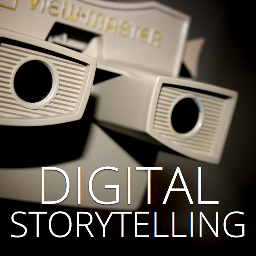Charity Clarity: How Do We Maintain Our Charity’s “Vision” While Letting The Community Share Who They Think We Are?
October 15, 2013
3 min read
 Recently, I had the good fortune of participating in the Digital Storytelling Conference. And I was honoured when asked to facilitate the Charity Luncheon beforehand. There were so many great questions that came up over our sandwiches, that I wanted to share them here. More so, I wanted to harness the power of community to find the answers and so, I went out and asked some colleagues and peers to help add a multidimensional layer to these questions. We’ll be posting the answers one by one over the next couple of weeks, so stay tuned!
Recently, I had the good fortune of participating in the Digital Storytelling Conference. And I was honoured when asked to facilitate the Charity Luncheon beforehand. There were so many great questions that came up over our sandwiches, that I wanted to share them here. More so, I wanted to harness the power of community to find the answers and so, I went out and asked some colleagues and peers to help add a multidimensional layer to these questions. We’ll be posting the answers one by one over the next couple of weeks, so stay tuned!
Last posts:
1. How can the smallest charity be effective telling their story?
2. How can a small charity turn their social media attention into donations and/or purchases?
How do we maintain our charity’s “vision” while letting the community share who they think we are?
Joel Bentley (Peer Giving): By being diligent to monitor what your community is saying. If you find that they’re saying something false, correct them in a friendly way. Never scold. And also by making it clear what your vision is about in the first place.
Dee Keilholz (Charity Express): You can help your community to understand who your are, by being clear and concise when it comes to communicating your message. One way to make sure your community understands and distributes your “vision” is by providing your community with messaging guidelines or pre-written copy, e.g. provide them with a press release and ask them to feature the release on their blog — as opposed to asking them to simply write a blog about your latest campaign etc.
Also keep in mind that having an engaged community is more important than having supporters that are always right on cue with your charity’s message. If someone is completely off target: Joel put it perfectly in his reply.
Crystal Henrickson (Chimp Foundation): Take the time to get to know those participating in your community. By being personal, and committing to relationships, your biggest advocates will learn the facts of your story more deeply. Keep an eye open for those most excited to be part of your organization, and empower them to share their version of your story in their own way. Stories shared from the heart are much more impactful and personal, even if it’s not worded the exact way the organization wishes.
